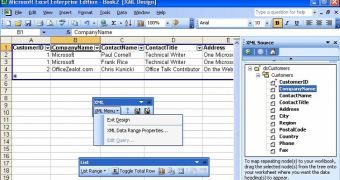Microsoft goes on with its plans to retire Windows XP on April 8, so today the company rolled out a new warning to remind everyone that both the 13-year-old operating system and Office 2003 can no longer cope with the requirements of the modern IT world.
Office 2003 users should move to Office 365, the company said, as it makes working with documents faster and easier than any time before.
“Over ten years ago we introduced Office 2003 into the market, and at the time it was on the cutting edge of productivity – it sported a new Office logo, gave birth to OneNote and had a new look and feel that excited our customers,” Microsoft explained in a blog post, pointing out that unsupported Office versions can be just as dangerous as Windows.
“But Office 2003 no longer meets the needs of the way we work, play and live today. For this reason, it is time to say farewell to Office 2003 and embrace the productivity solution of today – Office 365.”
As far as Windows XP is concerned, Microsoft admits that it was a pretty good operating system, but explains that users need to move on and switch to software that comes with modern features and helps you get your job done easier and faster.
This is the case of Office 2003 too, Microsoft said in the blog post, as the majority of users have apparently forgotten that April 8 also brings end of support for Office, not only for Windows XP.
“The early 2000s were great, but we couldn’t be happier to be where we are today. We’re better connected, flexible and more productive. It feels good to be modern – join us, by upgrading to Office 365 today,” the company explained.
Since Office remains the number one productivity suite worldwide, it’s critical for users to move to a version that’s supported by Microsoft itself, as new flaws and vulnerabilities are found on a regular basis, which clearly makes patches a must-have.
Today for example, the software giant confirmed a security glitch in Word 2010, revealing that cybercriminals can remotely execute code on an unpatched computer using a malicious RTF document.
The company already rolled out a Fix-it patch to help users configure their computers in order to stay away from any potential attacks, but a full-time update that would address the vulnerability is only expected to be shipped to users on Patch Tuesday in April.

 14 DAY TRIAL //
14 DAY TRIAL //